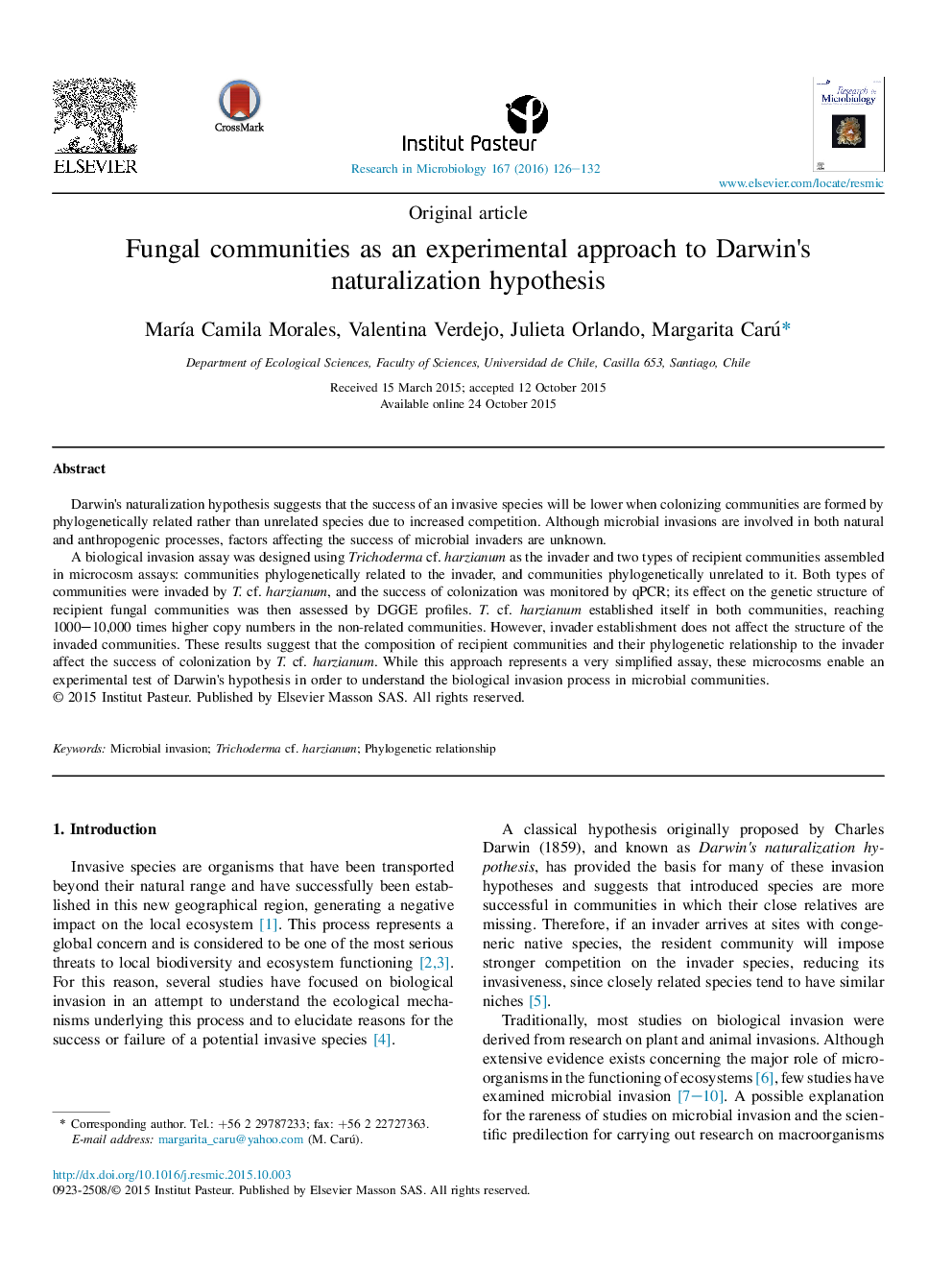| کد مقاله | کد نشریه | سال انتشار | مقاله انگلیسی | نسخه تمام متن |
|---|---|---|---|---|
| 4358344 | 1300418 | 2016 | 7 صفحه PDF | دانلود رایگان |
Darwin's naturalization hypothesis suggests that the success of an invasive species will be lower when colonizing communities are formed by phylogenetically related rather than unrelated species due to increased competition. Although microbial invasions are involved in both natural and anthropogenic processes, factors affecting the success of microbial invaders are unknown.A biological invasion assay was designed using Trichoderma cf. harzianum as the invader and two types of recipient communities assembled in microcosm assays: communities phylogenetically related to the invader, and communities phylogenetically unrelated to it. Both types of communities were invaded by T. cf. harzianum, and the success of colonization was monitored by qPCR; its effect on the genetic structure of recipient fungal communities was then assessed by DGGE profiles. T. cf. harzianum established itself in both communities, reaching 1000–10,000 times higher copy numbers in the non-related communities. However, invader establishment does not affect the structure of the invaded communities. These results suggest that the composition of recipient communities and their phylogenetic relationship to the invader affect the success of colonization by T. cf. harzianum. While this approach represents a very simplified assay, these microcosms enable an experimental test of Darwin's hypothesis in order to understand the biological invasion process in microbial communities.
Journal: Research in Microbiology - Volume 167, Issue 2, February–March 2016, Pages 126–132
